The extraordinary story of
Pandit Piaraylat Atal
Indian Medical Service & 129TH Duke
of Connaught’s own Baluchisy
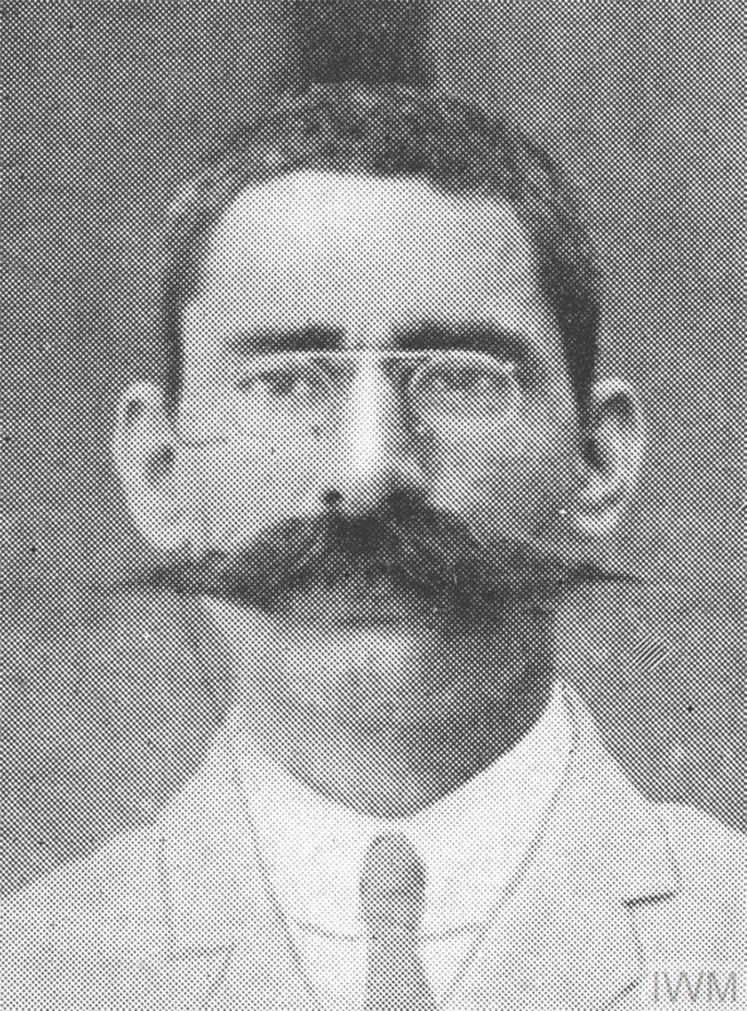
Throughout the world wars the men and women of the medical services worked tirelessly to save lives. Wherever service personnel fought and died, medical professionals were there on the front line, taking the same risks, preserving life. Away from the battlefields, the wounded and sick recovered in hospitals and hundreds of thousands of skilled staff worked with dedication, care and kindness to return them to health, often developing new and cutting-edge treatments for battle wounds and illnesses that form the basis of treatments today.
Atal in Jaipur, India
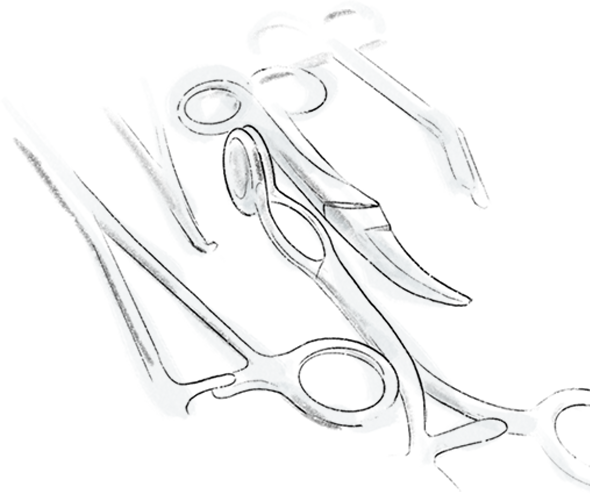
Pandit Piaraylat Atal was born in 1872 in Jaipur, India. He was the son of the Private Secretary to the Maharaja of Jodhpore, and the grandson of the former Prime Minister of Jaipur State. His early life was privileged, and a career in politics would have been a clear path for him to follow. After leaving school he decided instead to pursue a career as a doctor and attended medical school in Lahore. After graduating he took the opportunity to continue his studies in the UK and travelled to England. In 1899 he passed the highly competitive exam to serve with the Indian Army Medical Service.

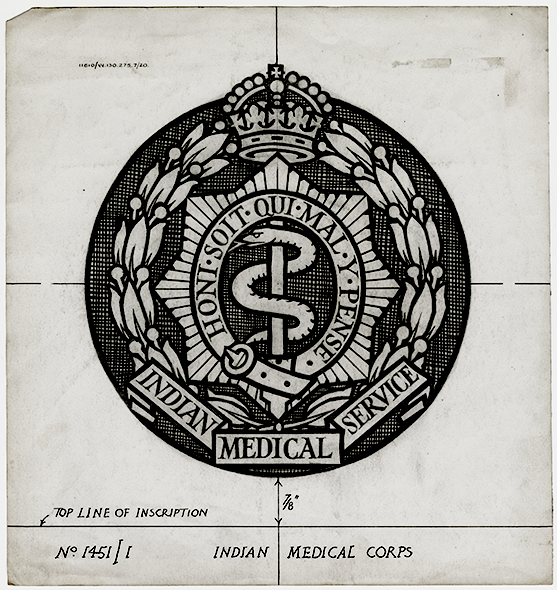
Pandit served with the Indian Army Medical Service for nearly ten years in India and in China, reaching the senior rank of Major. In 1912 he left the Army and travelled back to the UK to specialise as an ear, nose and throat doctor before returning home to settle down with his wife and five children in Jaipur.
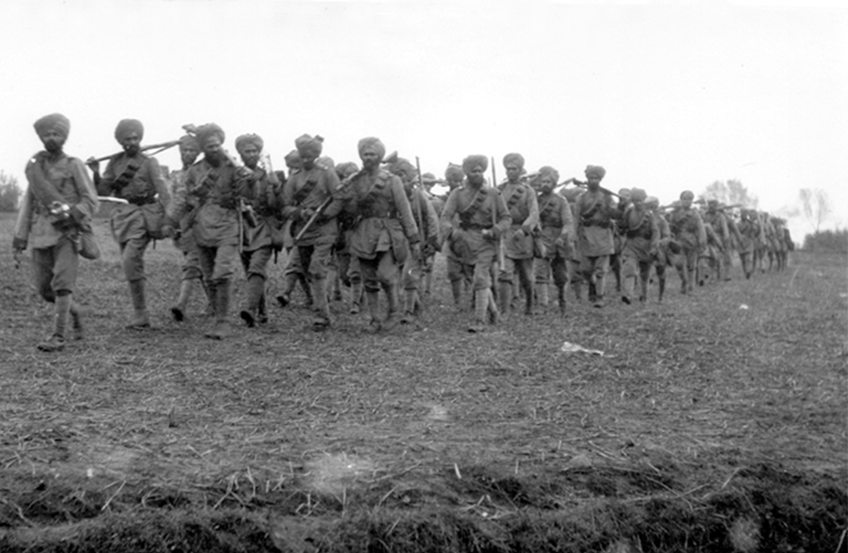
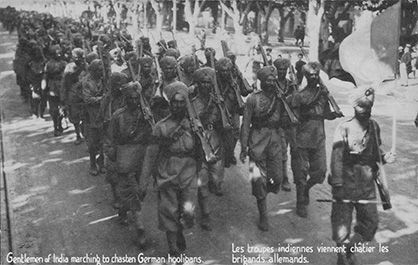
1914
Upon the outbreak of the First World War, Pandit decided to leave his family and home to serve in Europe. Aged 41, re-joined the Indian Army Medical Service and was sent to fight on the Western Front in France and Belgium with the 129th Duke of Connaught's Own Baluchis, a battalion of some 1,000 pre-war veteran Sikh soldiers of the British Indian Army.
Pandit and the 129th Baluchis arrived in France in September 1914. These tough, well trained, and well equipped soldiers were desperately needed at the front and 129th Baluchis became the first Indian Army unit to see action when they went into battle at Ypres in late October. One of their number, Sepoy Khudadad Khan, received the Victoria Cross for his courage and determination in the face of overwhelming odds at Ypres, he was first servicemen of the British Indian Army to receive Britain's highest award for gallantry.
As the battalion doctor, Pandit was responsible for the care of all the men of the battalion. He was a well-known senior figure and wherever his men fought, Pandit worked to establish aid posts and evacuation routes, ensuring they received the best care as quickly as possible. Pandit and the 129th Baluchis were on the front line and saw almost continuous action throughout the winter of 1914, suffering heavy losses in numerous brutal engagements during these early months of the war. Despite his seniority, Pandit was regularly to be found in the thick of the action, working in the front-line aid posts, directing the evacuation of the wounded, and even recovering the wounded under fire in no-man's land.
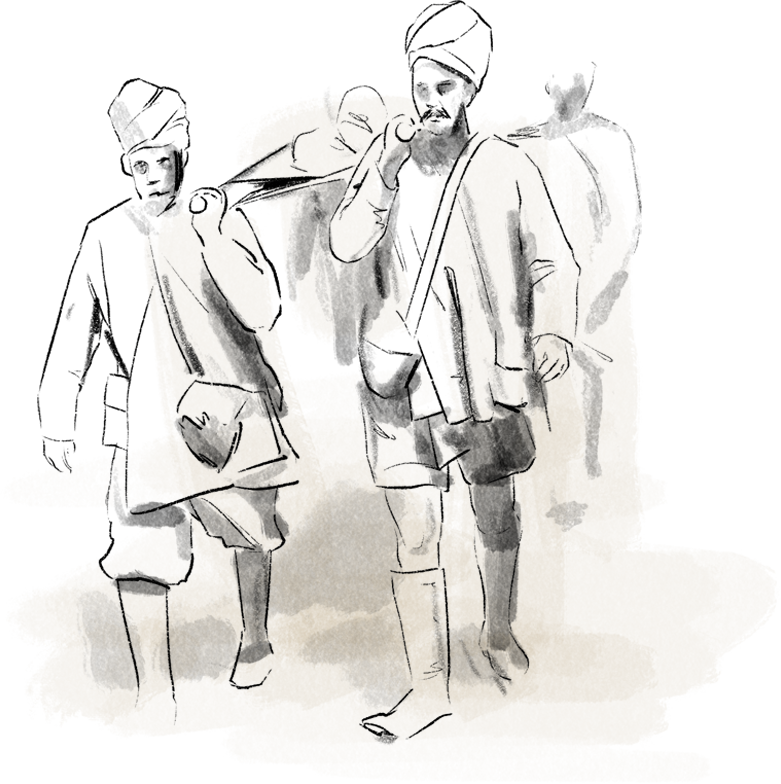
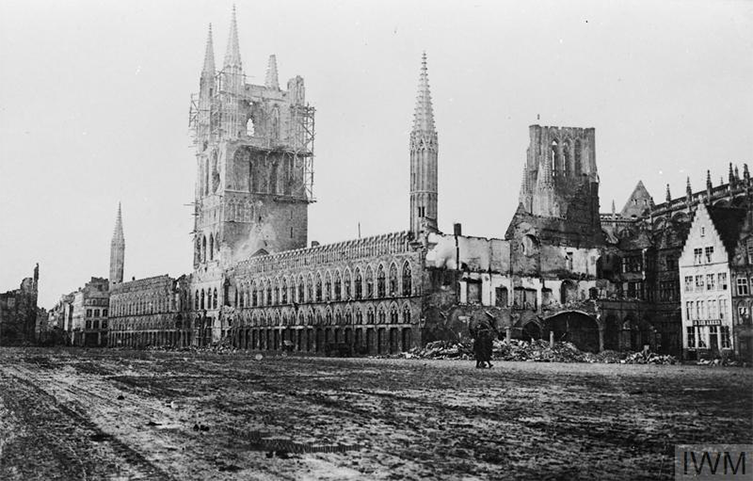

In early November 1914, the 129th Baluchis took over a section of the front line in French Flanders. For the next two weeks the fighting was almost constant, with both sides launching attacks and sending out combat patrols. Men were killed and wounded every day in battle or by artillery that regularly bombarded their positions. Conditions were terrible with temperatures often well below freezing.
On 15 November the aid post where Pandit was working was targeted by German artillery and shells rained down around his position. Pandit ordered the immediate evacuation of the wounded, staying behind until every man was moved to safety.
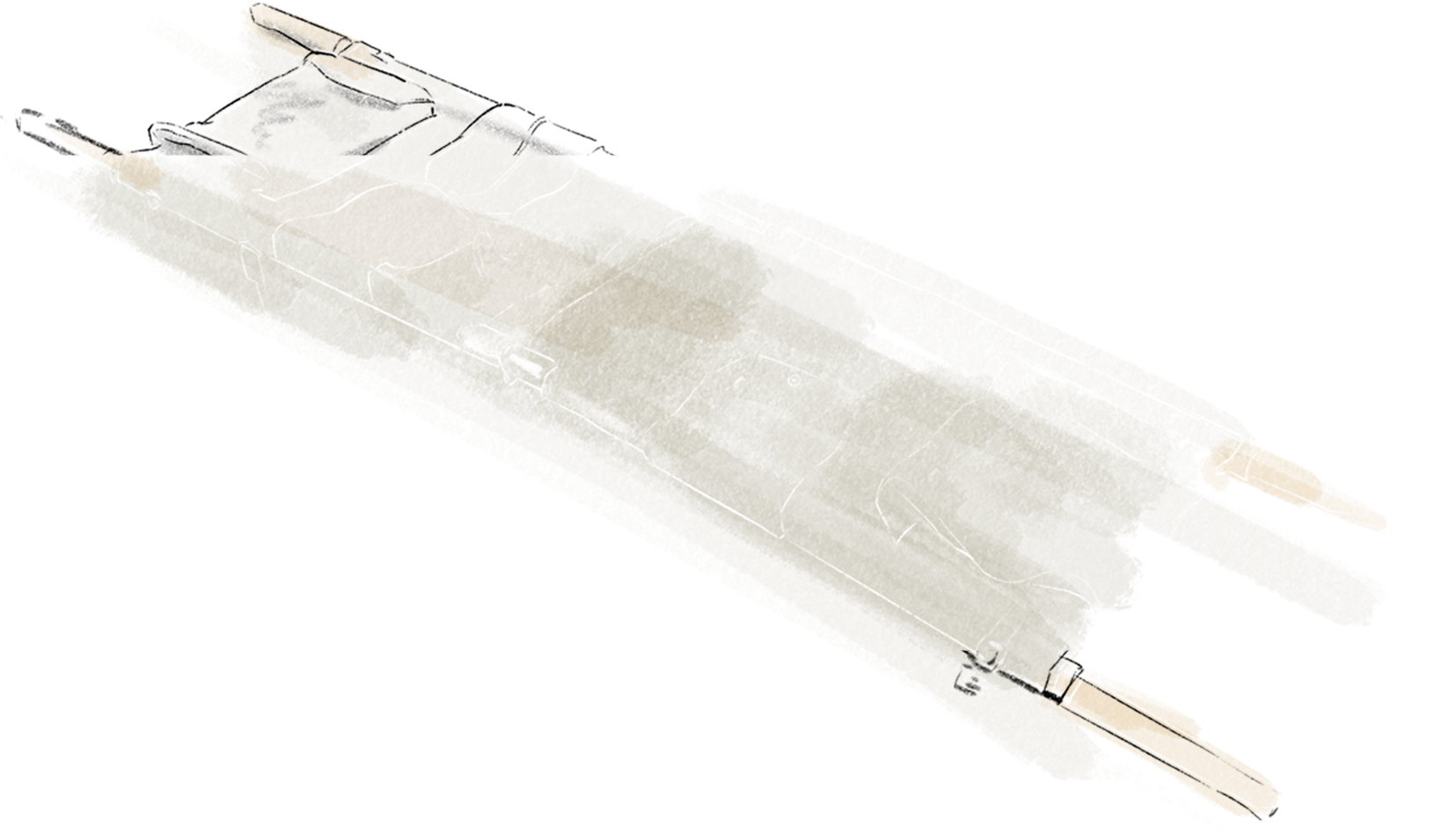
On 23 November Pandit was hard at work in the battalion hospital. An attack earlier in the day had gone remarkably well and a section of German trench had been captured along with several machine-guns. Pandit was caring for the men wounded in the attack when the hospital can under shell fire. Before anything could be done, a direct hit landed amongst the wounded soldiers. Five men were killed, including Pandit. He was 43 years old.

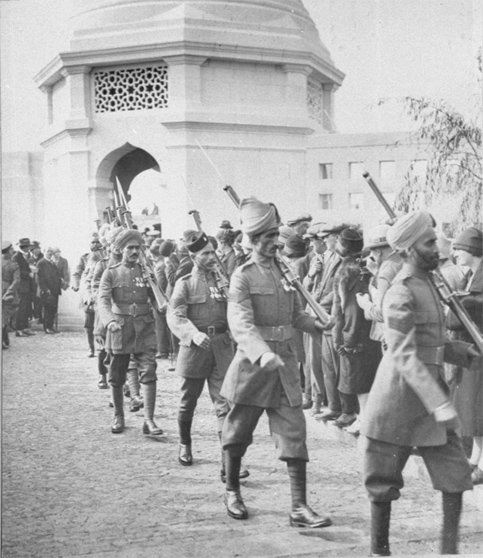
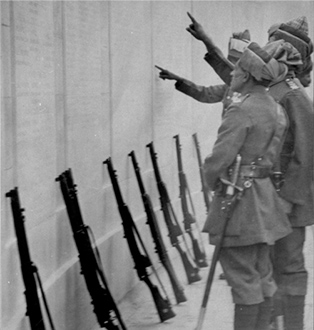
“During the day our hospital was
shelled and Major Atal & LT Singh of the
Indian Medical Service with four or five
men were all killed. Major Atal's loss is
deeply regretted in the regiment”
- Battalion was diary records -
Pandit was buried by his comrades, but his grave was lost in later fighting. Today, he is commemorated on the CWGC Neuve-Chapelle Memorial to the missing, not far from where he died.
The Neuve-Chapelle Memorial commemorates over 4,700 Indian soldiers and labourers who lost their lives on the Western Front during the First World War and have no known graves. The location of the memorial was specially chosen as it was at Neuve Chapelle in March 1915 that the Indian Corps fought its first major action as a single unit.
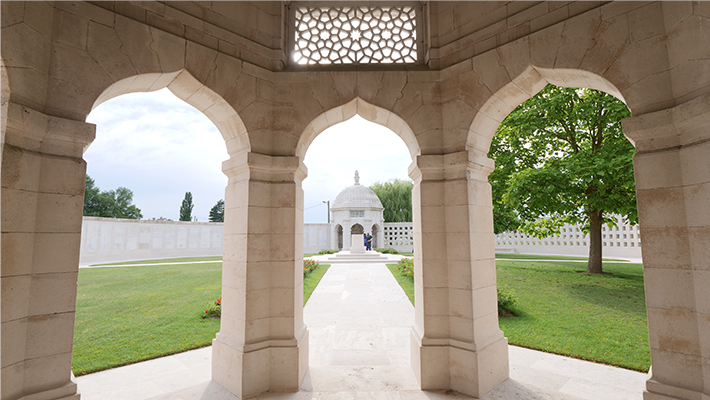
The memorial was designed by the celebrated British architect, Sir Herbert Baker, and unveiled by the Earl of Birkenhead on 7 October 1927. Lord Birkenhead, then Secretary of State for India, had served as a staff officer with the Indian Corps during the war. The ceremony was also attended by the Maharaja of Karputhala, Marshal Ferdinand Foch, Rudyard Kipling, and a large contingent of Indian veterans.
Sarojini Naidu was an indian poet who lived in England for several
years publishing two poetry collections. She met Gandhi and became
one of his close associates and activists addressing Indian women on
issues of Indian independence and toured the country making
speeches, eventually racking up four prison sentences for her
anti-British activity. She wrote her most famous poem, ‘The Gift of
India’, that touches the complex relationship between India, the
British Empire, the First World War and the sacrifice of Indian
servicemen in France and Flanders.
Pandit Piaraylat Atal
1872 - 1914
We'd love to hear your story
We use necessary cookies to make our site work. We'd also like to set analytics cookies that help us make improvements by measuring how you use the site. These will be set only if you accept.
